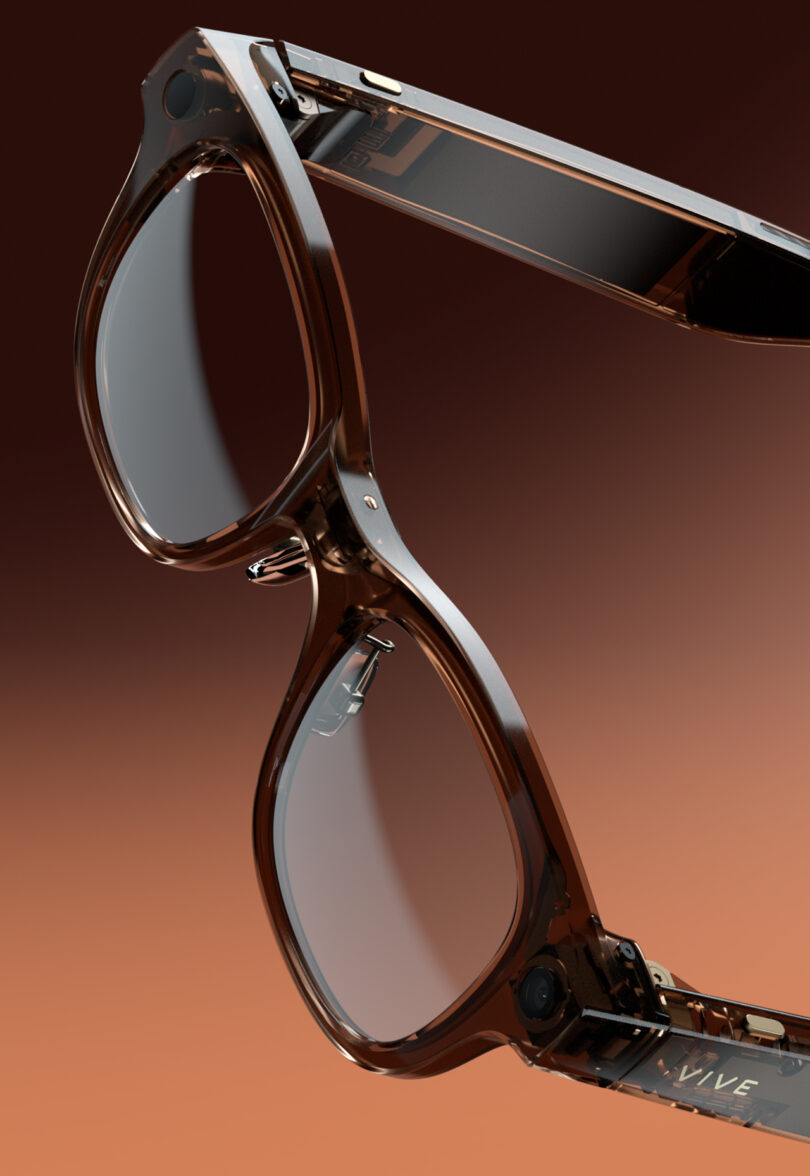Smart glasses are quickly becoming one of the most intriguing frontiers in wearable technology, with major players racing to strike the right balance between fashion and function. HTC is the latest to step into the spotlight with the Vive Eagle AI smart glasses, a sleek new model designed to challenge the likes of the Meta Ray-Ban glasses while carving out its own niche with a focus on AI-powered assistance and real-time translation.
Unlike bulky AR headsets that have yet to break into the mainstream, the Vive Eagle glasses take a fashion-first approach. They feature slightly thicker-than-average arms to discreetly house their tech, along with a 12MP ultra-wide camera tucked into the frame. While the camera can take photos, its primary role is to give the AI assistant visual context, allowing it to better understand and respond to your environment.
Available in several colors – most with transparent finishes – the Vive Eagle’s design leans toward a futuristic, lightweight aesthetic. That choice might not appeal to everyone, but it showcases HTC’s intent to create glasses that stand out without feeling like a gadget strapped to your face.

While the dream of glasses that overlay digital information directly in your field of vision is still a work in progress, HTC’s approach makes the most of what today’s tech can offer. By pairing microphones, speakers, and smartphone connectivity, the Vive Eagle transforms into a voice-driven AI companion.

The glasses integrate with platforms like ChatGPT and Gemini, letting you query the web, ask general knowledge questions, or get contextual answers to what’s in front of you. Voice commands expand the functionality further, giving wearers the ability to record quick reminders hands-free; translate conversations in real time across 13 languages; and get local recommendations, such as nearby restaurants or cafés.
This emphasis on AI elevates the experience far beyond what basic “smart audio” glasses can offer. Instead of simply streaming music, the Vive Eagle positions itself as a practical tool for travel, productivity, and everyday convenience.

HTC claims the glasses deliver up to 36 hours of standby time and around 4.5 hours of continuous playback, which is on par with other smart eyewear options. As with wireless earbuds, the included charging case helps extend usability throughout the day.

For now, the HTC Vive Eagle glasses are launching exclusively in Taiwan, priced at the equivalent of $520 USD. HTC hasn’t confirmed a wider rollout, but given the growing interest in AI wearables, a global release may not be far off if early adoption proves strong.
To learn more about the HTC Vive Eagle smart glasses, head to vive.com.
Photography courtesy of HTC.

